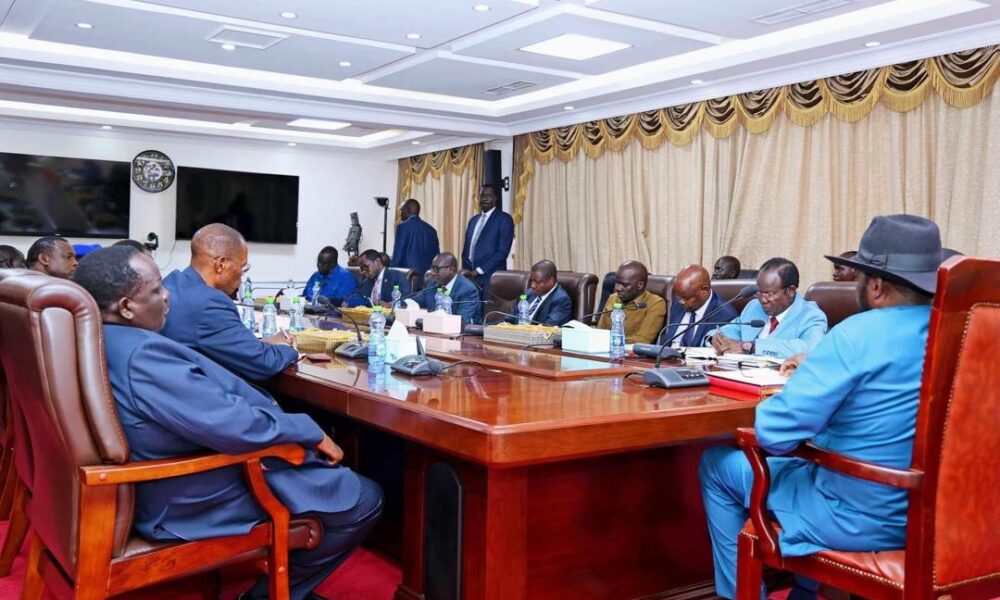By William Madouk
President Salva Kiir on Monday convened an emergency meeting with key officials from the economic cluster to discuss the escalating inflation crisis gripping the country.
Dr. James Wani Igga, Vice president for the economic cluster, Minister of Finance, Bak Barnaba Chol, and the Governor of the Central Bank of South Sudan were among the officials summoned by Kiir.
The meeting focused on how to address the pressing economic issues and formulate strategies to combat runaway inflation.
The government introduced a comprehensive plan that focuses on increasing non-oil revenue collections and ensuring sufficient food supply to the market at subsidized prices.
The government’s plan also emphasizes the need to diversify revenue sources beyond oil, which has been a major driver of the country’s economy.
Additionally, ensuring an adequate supply of food to the market at subsidized prices, a step towards alleviating the burden on families struggling with rising costs.
According to the office of the president, Kiir highlighted the importance of collaboration among government institutions to stabilize prices, promote economic growth, and ensure financial stability, according to the presidential press unit.
He also directed members of the Economic Cluster to work on collaborative efforts aimed at taming inflation and steering the nation’s economy towards sustainable growth.
Addressing the media after the meeting, Bangasi Joseph Bakosoro stated that the meeting focused on how to strategize and implement measures to curb the persistent inflationary pressures affecting the economy.
“The meeting resolved the following: an increase in non-oil revenue collections and the supply of enough food into the markets at subsidized prices,” Bakosoro was quoted as saying by the presidential page.
According to the statement, the leaders also resolved to supply enough fuel to the country, allocate enough money to agriculture, and auction a sizable amount of hard currency to stabilize the exchange rate.
Similarly, they agreed to ban the sale of dollars and other currencies on the streets as well as eliminate illegal checkpoints across the country.
Furthermore, the top government brass directed the security forces to immediately implement the directives.
Mr. Bakosoro cited that the outcome of the meeting underscores a united commitment from the leaders to combat inflation and foster a conducive economic environment for all citizens.
The South Sudanese pound has experienced a significant depreciation against the US dollar, leading to a surge in prices across the country.
As a result, many families are facing the daunting challenge of making ends meet with meager salaries.
The official exchange rate by the Bank of South Sudan shows a dollar sale at SSP 1,518, while the black-market sale is at SSP 1,700 per dollar.




